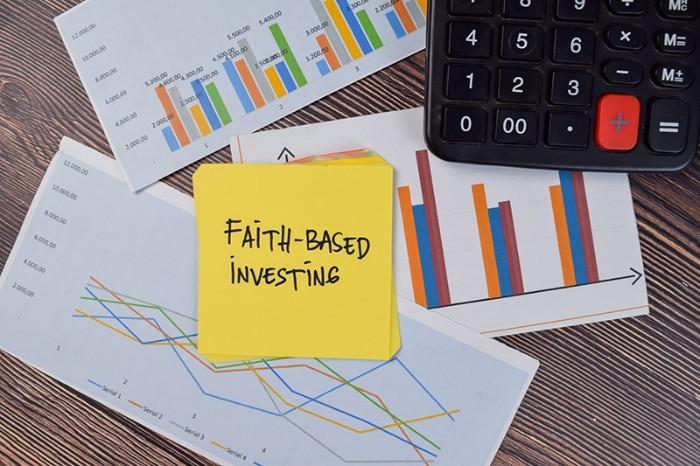Do you have an interest in combining personal values with financial investments? Faith-based investing may be the perfect avenue for you.
Faith-based investing has become increasingly popular among investors who want to ensure their portfolios align with their moral beliefs and religious convictions.
This blog will provide a comprehensive overview of faith-based investing, how it works, and some tips on creating your faith-based investment portfolio. Read on to discover if this approach might work for you.
Overview of What Faith-Based Investing Is
Faith-based investing is a strategy that involves investing in companies and organizations that align with your moral convictions.
This form of investing typically follows religious guidelines, such as those prescribed by the Catholic Church or other major religions like Islam, Judaism, and Buddhism. Individuals select investments that conform to their religion’s values and standards using this approach.
Faith-based investing allows individuals to match their financial goals with their religious or moral beliefs. This approach is not limited to members of any faith but encompasses various values and interests.
It also offers the potential for long-term returns while promoting socially responsible investments.
Common Principles Among Faith-Based Investors

Faith-based investors typically have a few common principles that guide their portfolios.
The most basic is the belief in investing without violating fundamental religious or moral beliefs. This means avoiding companies whose products and services are associated with unethical activities by faith-based investors, such as gambling, alcohol production, tobacco use, pornography, and weapons manufacturing.
Other common principles include avoiding companies with a record of environmental pollution and unfair labor practices and investing in businesses that use their profits to promote social justice or charitable works.
Faith-based investors may also seek companies supporting faith-related causes, such as religious charities, educational institutions, and healthcare facilities.
Lastly, many faith-based investors are committed to finding investments that are not only profitable but also socially responsible and ethical.
Faith-based investors ensure that their investments align with their beliefs and convictions by investing in companies whose products and services reflect their values. Knowing that their portfolio aligns with their faith can help them achieve peace of mind.
Benefits of Faith-Based Investing
Faith-based investing offers a unique opportunity for investors to combine their values and beliefs with the financial investments they make. This type of investing allows you to create a portfolio tailored specifically to your faith’s moral convictions while enabling you to make sound financial decisions.
For instance, if you believe in protecting the environment, you may invest in companies and funds focusing on green initiatives. If you're a Christian, investment options are designed for Christian-minded investors.
Faith-based investing also has social and financial advantages. As the money you invest helps fund businesses with ethical beliefs, it supports your faith's values while helping you grow your wealth.
In addition, investing with a focus on faith-based initiatives may access investments with lower fees and better performance than traditional investments.
Steps to Take To Start Faith-Based Investing

Define Your Investment Goals
It’s important to clearly define what you hope to achieve from faith-based investing before you start building your portfolio. Consider your investment goals, as well as the values that are most important to you.
Understanding these will help guide your decisions regarding stock selection and other financial investments.
Evaluate Your Risk Tolerance
Investing in any capacity comes with risk, so it’s important to understand what level of risk you feel comfortable taking before investing your money. Different investments come with different levels of risk, and knowing what type of investment vehicle reflects your comfort level is essential when constructing a faith-based portfolio.
Research Companies
Once you have established your goals and risk tolerance, it's time to start researching companies that fit your criteria for faith-based investing. Look into the company's history, management team, products/services, and other relevant information before making an investment decision.
Also, consider whether the firm aligns with your religious convictions, values, and social responsibility practices.
Choose Your Investment Vehicle
Many different types of investment vehicles are available, so it’s important to do your research and consider which is best for you. Since faith-based investing is often focused on companies that focus on sustainable values and principles, there are a few options, such as mutual funds, exchange-traded funds (ETFs), and impact investments.
Monitor Your Portfolio
As with any other type of portfolio, you should regularly monitor your faith-based investments to track performance and assess the need for any changes to meet your goals. Keep an eye on news about the particular company or industry and its financial performance to ensure your investments are still performing as expected.
Faith-based investing is a great way for investors to bring their religious convictions and personal values into their financial decisions. Following the steps outlined above, you can create an investment portfolio that aligns with your faith and helps you reach your financial goals.
Common Mistakes To Avoid When Faith-Based Investing
Not Doing Enough Research
Doing your research before investing in a faith-based company or fund is important. Ensure you understand what the company does, how it operates, and why it aligns with your religious beliefs.
Investing Too Much Money Too Soon
Don’t invest too much money without fully understanding the risks involved. Start slowly and only invest an amount you are comfortable losing if things don’t go as planned.
Ignoring Diversification
While aligning your values is important, so is diversifying your investments across multiple sectors and asset classes to ensure you are well-rested to any particular area.
Not Considering Tax Implications
Ensure you know any tax implications associated with investing in faith-based funds and companies so you don’t get stuck with an unexpected bill at the end of the year.
Forgetting to Rebalance
As your investments grow, it is important to periodically review and rebalance your portfolio to ensure it meets your goals and objectives.
By avoiding these common mistakes, you can ensure your faith-based investing experience is successful.
Examples Of Successful Investments Made With Faith-Based Investing Principles
There are several notable examples of successful investments made using faith-based investing principles. For instance, the Catholic Healthcare West organization has generated returns of over 15 percent annually for more than 10 years through its faith-based approach to investing.
Similarly, many churches have benefited from well-executed faith-based investment strategies; some have even been able to increase their giving.
Another successful example is the Whitefield Fund, an investment fund designed around biblical principles. This fund has gained traction with Christian investors and has grown steadily since its inception in 2003.
FAQs
What is the history of faith-based investing?
Faith-based investing has been around for centuries, but it wasn’t until the late 1970s that the practice gained traction in the United States. The first faith-based mutual fund was launched in 1978, and since then, other retirement funds, hedge funds, charitable organizations, and commercial banks have begun to offer specialized faith-based investments.
What is a faith-based fund?
A faith-based fund is a mutual fund, exchange-traded fund (ETF), or portfolio of individual stocks and bonds that invests in companies whose policies align with the investor’s religious values.
How Does Faith-Based Investing Work?
The primary objective of faith-based investing is to generate financial returns without compromising the investor’s religious convictions. To achieve this, fund managers screen companies for compliance with their investors' values and beliefs.
Conclusion
Faith-Based Investing is a growing investment strategy that has many benefits. It is based on shared religious and moral principles, which lead to more responsible and sustainable investing practices. Setting clear goals, researching the ethical aspects of investments, and diversifying stocks make up some of the steps necessary to become successful with this type of investing. Some common pitfalls should also be avoided, such as improper allocation or overestimating returns. The success stories have demonstrated that following faith-based principles can produce extraordinary outcomes with proper diligence.



